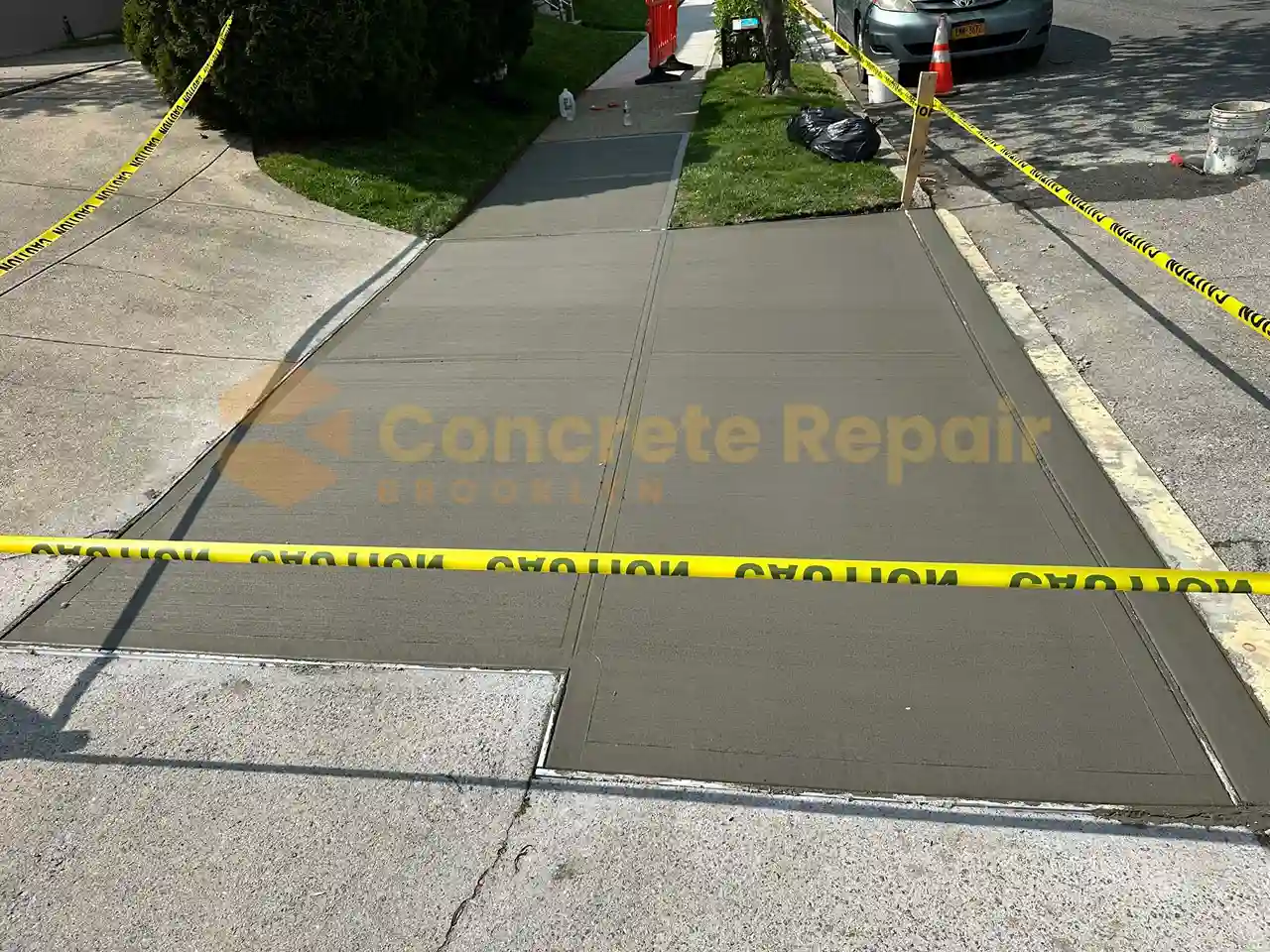
How Long Should a Concrete Driveway Last?
A concrete driveway is a major investment for any home. Fortunately, with professional installation, proper care, and regular maintenance, a driveway can last between 20 and 50 years. However, various factors can either extend or shorten its lifespan. Let’s explore these factors and the best ways to ensure a driveway’s durability and longevity.
Factors That Determine Concrete Driveway’s Longevity
Following are some of the factors that determine a driveway's lifespan and durability.
Weather Conditions
Condition of the weather plays a huge role in how long concrete will last. In regions with heavy rain, snow and freeze-thaw cycles, driveways are exposed to constant moisture and temperature changes. This repeated freezing and thawing can cause cracks and surface damage. Similarly, prolonged exposure to harsh UV rays in sunny climates can weaken concrete over time, making it more prone to cracking and erosion.
Proper Care and Upkeep
The longevity and functionality of a driveway are greatly impacted by routine maintenance. Regularly cleaning your driveway, sealing it with a high-quality penetrating sealer, and caulking cracks can prevent moisture, salt, and debris from causing damage. Taking prompt action to fix and level any settling slabs with the help of professional concrete contractors can also stop minor issues from becoming major ones that need replacement.
Quality of the Concrete
The quality of the concrete being used during construction is critical. It plays a significant role in determining the driveway’s lifespan. If the concrete mix (the right ratio of cement, sand, aggregate, and water) wasn’t properly prepared or if the wrong type of concrete (without reinforcement) was used for your region’s conditions (such as excessive moisture and UV exposure), its lifespan is likely to be less than 20 years. Moreover, poorly installed concrete without necessary joints (expansion or control joints) and reinforcement, such as wire mesh or rebar, can lead to premature cracking and structural failure.
Ways to Increase the Driveway Lifespan
Below are some of the effective ways to help increase your driveway’s lifespan as long as you want.
Maintaining and Repairing Promptly
Staying on top of maintenance is key. Regular pressure washing, sealing, and repairing small cracks early can prevent larger, more expensive problems later. If you notice any settling or uneven slabs, getting them professionally leveled quickly will help preserve the integrity of your driveway and prevent costly replacement in the long run.
Using Effective Deicing Techniques
Winter maintenance can either protect or harm your driveway. Avoid using traditional deicing salts and harsh chemicals, as they can deteriorate the concrete surface. In order to minimize the need for salt in icy conditions, use wood chips or sand for traction. Additionally, always shovel snow promptly to minimize moisture absorption. It will help keep your driveway surface dry and increase its lifespan.
Preventing Tree Roots Invasion
Tree roots can cause significant damage by lifting the concrete slabs upward and making them uneven. You should plant the trees far from the driveway or install root barriers to prevent roots from encroaching. If roots are constantly creating a problem, installing a tree root barrier or removing the tree may be a necessary way to keep your driveway level and crack-free.
Avoid Putting Heavy Loads
Concrete driveways are durable, but they aren't designed for constant, excessive weight. Parking heavy vehicles, such as large RVs or construction equipment, on the driveway can cause cracks, settling, and other structural damage. Limiting heavy loads helps preserve the strength and stability of your driveway over time.
When Does Driveway Replacement Become Necessary?
A driveway should be replaced when it becomes structurally unsound or excessively damaged. Deep cracks, potholes, severe surface erosion, and unevenness are signs that require effective repair. If the driveway has extensive damage that interferes with daily use, affects drainage, or is beyond cost-effective repair, replacement is usually the best solution.
Additionally, if the driveway is nearing the end of its expected lifespan (typically 20-50 years for concrete) and significant repairs are needed, replacement may be a more economical long-term option.
Conclusion
While a concrete driveway is built to last for decades, its true lifespan depends largely on factors such as the weather conditions of the area, maintenance, material quality, professional construction techniques, and everyday use. By taking proactive steps such as regular maintenance and prompt repair, avoiding harsh chemicals, and protecting against tree roots, you can significantly extend the life of your driveway and maximize your investment.
Useful Article: https://www.concreterepairbrooklyn.com/blog/things-to-know-before-concrete-driveway-repair





